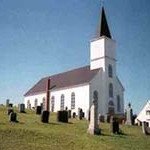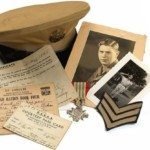In 1585 ad 1587 groups of colonists from Great Britain were sent to Roanoke Island by Sir Walter Ralegh (often misspelled “Raleigh”). However, those attempts at building settlements in the area were not successful. Nevertheless, the first child of English parents born in America was born at Roanoke Island in 1587. Her name was Virginia Dare.
After the monarchy was restored in 1660, Charles II of England took power. On March 24, 1663 he gave rewards to 8 people who tried to help him regain his power. Those people, known as Lords Proprietor, were given the land that was at that time known as Carolina. It was named for his father, Charles I. From 1663 until 1729 Carolina was a British colony. Then South Carolina and North Carolina became separate provinces.
English colonists established permanent settlements near the Chowan River and the Roanoke River in 1653. From 1663 to 1665 the area had the status of being an English proprietary colony. It was also the site of several battles, rebellions, and raids, which included: Culpepper’s Rebellion (1677), The Quaker-led Cary Rebellion (1708), The Tuscarora Indian War (1711 to 1713)
There was not much fighting in North Carolina when the American Revolution took place. However, several people from North Carolina fought in the American Revolution in other areas. During the Civil War many North Carolina residents were against slavery, but the state as a whole was on the side of the Confederacy.
The Province of North Carolina, was organized in 1712. The State of North Carolina was created as the 12th state on November 21, 1789. It has 100 Counties. The capital is Raleigh and the official state website is www.nc.gov/. Select a North Carolina county to view information & records pertaining to each County
Getting Started with North Carolina Genealogy and Family Trees
Useful Hints for North Carolina Genealogy Research – In the heart of America’s south, the state of North Carolina has a very long history. It was one of the first states to be settled, it has Native American populations, it was heavily involved in the Civil War, it has a large amount of African American heritage, and much more. These are all reasons that so many people look for North Carolina genealogy data, and why so much is available.
Useful Hints for North Carolina Genealogy Research – In the heart of America’s south, the state of North Carolina has a very long history. It was one of the first states to be settled, it has Native American populations, it was heavily involved in the Civil War, it has a large amount of African American heritage, and much more. These are all reasons that so many people look for North Carolina genealogy data, and why so much is available.
A Good Beginning for North Carolina Genealogy – As you begin to look for North Carolina genealogy information you will need to understand that your resources will be found both online and offline. There are not a lot of smaller town or local archives that have been converted into online digital entities, and that means your first step in researching for North Carolina genealogy information is to develop a list of the different records that you will explore. This begins with some background information about the basic locations for finding genealogical materials.
Basic Tools for North Carolina Genealogy Data – This article is going to provide you with details about the resources available for anyone doing research for North Carolina genealogy. It is important to know that the basic list that all researchers for North Carolina genealogy will use includes:
- State Records – these offer probate information including birth certificates, deeds, death records, estate information, marriage details, military or veterans information, land records, state census information, surname lists, genealogical folders, maps, private manuscripts, newspapers, cemetery information, and more. These are available as online and offline resources for North Carolina genealogy.
- Local Records – you will normally begin with the county clerk’s office or website, and then use local genealogical societies, historical societies, small local libraries, and school or college libraries to provide you with important information for North Carolina genealogy. These are things that are usually offline and viewable by appointment or special arrangement.
- Vital Records – birth, marriage, divorce and death records are available from county, state, and national archives. These are locations in which you will find cemetery or obituary information, census records, newspaper items, military records, immigration and naturalization details, passenger lists and records, and more. These are available as online and offline resources for North Carolina genealogy.
Your Main Resources for North Carolina Genealogy – There are many targeted resources for North Carolina genealogy information. The most substantial records for North Carolina genealogy can be found at:
- NC Vital Records, 1903 Mail Service Center, Raleigh, NC 27699-1903. This is where you can order birth, death, marriage and divorce records.
Additionally, many records can be found at the following:
- North Carolina State Archives, 109 E. Jones St., Raleigh, N.C. 27601. Here you can find records of state, county, and local governmental units, and copies of federal and foreign government materials. In addition to official records are many private collections, organization records, maps, pamphlets, sound recordings, photographs, motion picture film, and a small reference library too.
North Carolina Genealogy Databases and other Helpful Links
Lastly, websites such as those listed below will provide state-specific genealogical details that can work wonders for North Carolina genealogy enthusiasts.:
- RAOGK Volunteers for North Carolina (raogk.org)
- North Carolina Genealogy Network Community (plus.google.com)
- State census records at Genealogy Research Guides (researchguides.net)
- North Carolina Indexed Historical Records (familysearch.org)
- Resources for Local History and Genealogy (loc.gov)
- North Carolina Genealogy Network (facebook.com)
- USGenweb – North Carolina Genealogy (ncgenweb.us)
- The North Carolina Family Group Sheet Project (fgs-project.com)
- Free GenForum Message Boards – North Carolina (genforum.genealogy.com)
- Directory of Scots in the Carolinas, 1680-1830
- Free Rootsweb Message Boards – North Carolina (boards.ancestry.com)
- Cyndis List North Carolina Links (cyndislist.com)
- North Carolina Mailing List (rootsweb.ancestry.com)
- North Carolina American History and Genealogy Project (usgennet.org)
- North Carolina (wikipedia.org)
- North Carolina Genealogy Look Ups (geneasearch.com)
- USGenWeb Archives Project for North Carolina (usgwarchives.net)
- Encyclopedia of North Carolina (northcarolinahistory.org)










